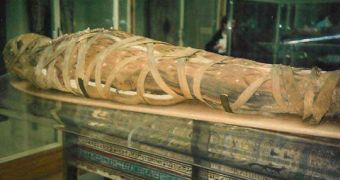This past Sunday, the people attending the American College of Cardiology meeting in San Francisco got to hear a team of researchers talking about how the arteries of ancient mummies were just as clogged as the ones of modern humans.
As the specialists who took the time to investigate this issue explain, this means that, contrary to popular belief, atherosclerosis might have very little to do with frowned upon habits such as smoking and eating whopping amounts of junk food.
In fact, it is very well possible that said medical condition is no more and no less than an unavoidable consequence of aging, TVNZ explains.
Prior to their piecing together this new theory concerning the causes of atherosclerosis, the researchers started analyzing the anatomy of mummies unearthed in ancient Peru and Egypt, along the Colorado River, and in the Aleutian Islands.
Due to the fact that these mummies came from different social and geographical backgrounds, the fact that almost 34% of them displayed signs of either probable or definite atherosclerosis cannot be linked to diet alone.
“What we've put together in this is four cultures with very disparate lifestyles and geography. We have a more-convincing argument about the presence of this disease in ancient people,” argued study leader Dr. Randall Thompson.
Backing up his statements, Caleb Finch, who now works as a professor of gerontology at the University of Southern California, stated that, “It looks to be the case that this [atherosclerosis] is an ancient condition of human population before the modern world and may in fact have been part of our species' aging.”
According to these investigations into the overall health of people who lived nearly 4,000 years ago, it appears that the elderly (i.e. individuals older than 40) were the ones more often than not affected by said medical condition.
Thus, nearly 50% of their mummies showed signs of atherosclerosis.
A detailed account of this research and its findings was published in the Lancet medical journal.

 14 DAY TRIAL //
14 DAY TRIAL //